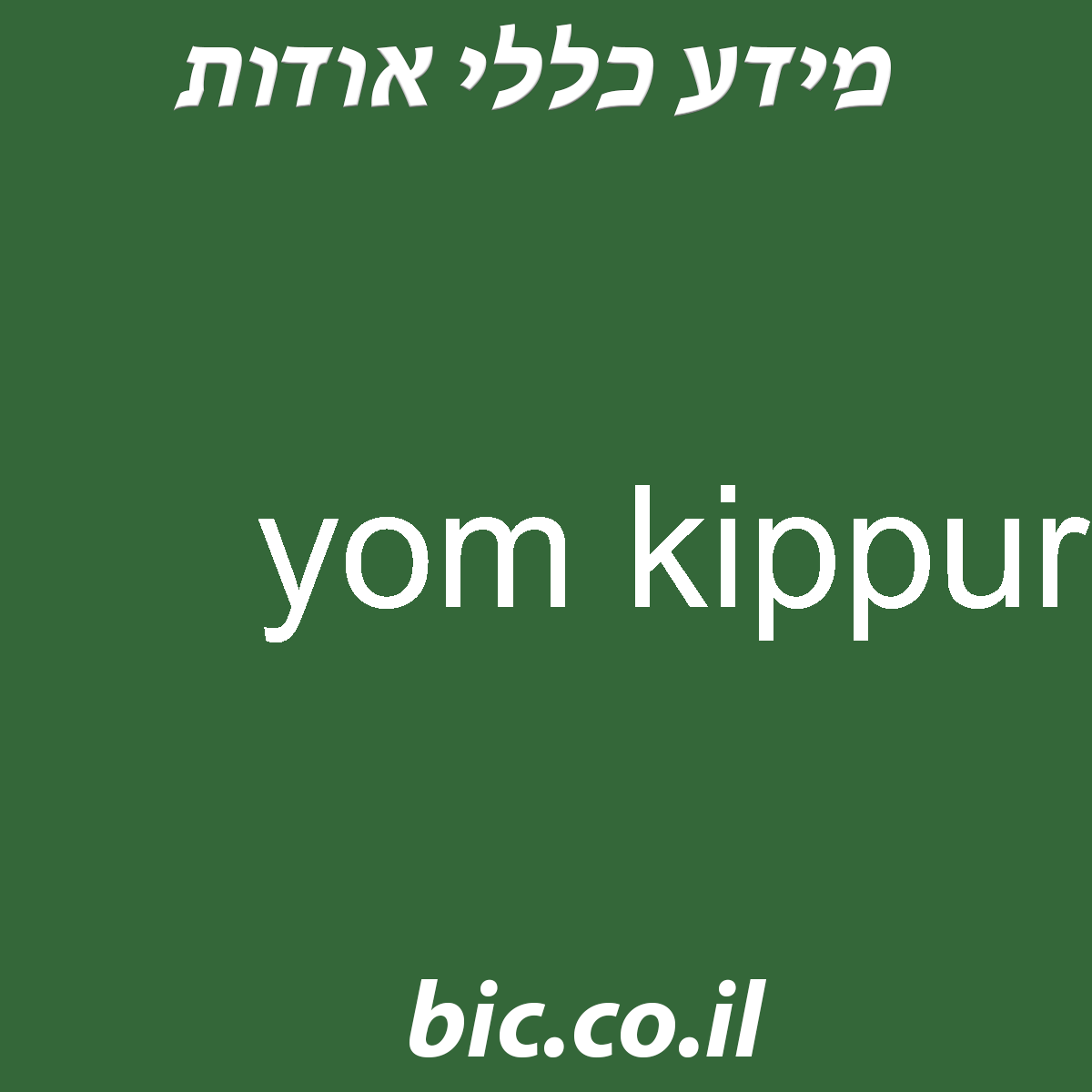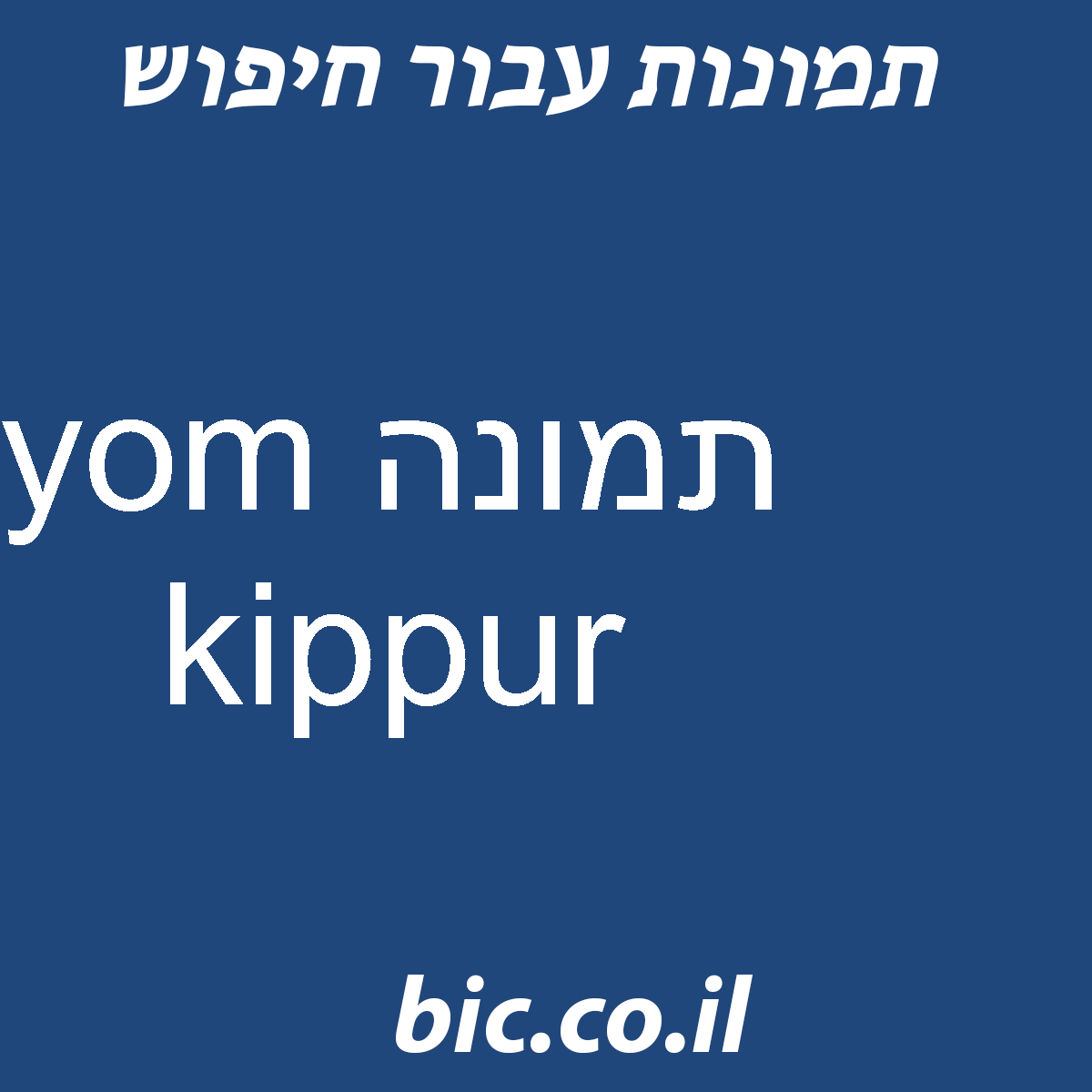en.wikipedia.org
The focus of the day is mainly on atonement and repentance. Key practices include complete fasting and asceticism, along with prolonged periods of prayer.
What Is Yom Kippur? – The Day of Atonement
chabad.org
Yom Kippur, known as the Day of Atonement, is a solemn 25-hour fast during which Jewish individuals engage in prayer, seek forgiveness, and strive for a renewed relationship with God and their community.
Yom Kippur | Holiday, Purpose, Meaning, & Facts
britannica.com
Yom Kippur is the most solemn of Jewish religious observances, during which Jews strive to atone for their sins and seek reconciliation with God. It marks the conclusion of the “10 days of repentance.”
myjewishlearning.com
Yom Kippur is the day when we are called to detach ourselves as fully as possible from the everyday world around us, so that we can focus on the spiritual and introspective aspects of our lives.
Yom Kippur 2024 – The Day of Atonement
chabad.org
Yom Kippur 2024 (the Day of Atonement) will be observed from October 11 to October 12. This fast day is considered the holiest day of the year, a time when we draw closest to G‑d and connect deeply with the essence of our spiritual being.
en.wikipedia.org
the start of the Jewish holy day of Yom Kippur. On 6 October 1973, an Arab coalition initiated a surprise assault on Israel.
embassies.gov.il
The day of fasting and prayer is observed on the 10th of Tishrei, which falls 10 days after Rosh Hashanah, the Jewish New Year.
History of Yom Kippur, Day of Atonement
britannica.com
What is Yom Kippur? | Ages 7-11 | Bitesize Religious
bbc.co.uk
Yom Kippur, known as the Day of Atonement, is the holiest and most solemn day in the Jewish calendar. The concept of atonement involves making amends and seeking to rectify wrongs. This day is dedicated to reflection, repentance, and spiritual renewal.
hebcal.com
repentance. Yom Kippur is observed on the 10th day of Tishrei in the Hebrew calendar, following the High Holy Days of Rosh Hashanah. It is a day dedicated to fasting, prayer, and reflection, where individuals seek forgiveness for their sins and strive to improve themselves in the coming year. The day is marked by a 25-hour fast, beginning before sunset on the eve of Yom Kippur and ending after nightfall the following day. Services are held in synagogues, where the community comes together to pray and engage in rituals that emphasize the importance of repentance and reconciliation.
What is Yom Kippur? | Ages 7-11 | Bitesize Religious
bbc.co.uk
gather for prayer and introspection. It is a solemn day dedicated to repentance, where individuals seek to atone for their wrongdoings and renew their commitment to their faith. The atmosphere is one of deep contemplation, as families and communities come together to observe this sacred time.
Yom Kippur in Israel: October 11-12, 2024
touristisrael.com
Israel comes to a standstill during the yearly observance of Yom Kippur. In 2022, Yom Kippur starts on October 4th and concludes the next evening.
Yom Kippur | Ceremony & Celebration Family Edition
rabbisacks.org
The most crucial lesson of Yom Kippur is that it is never too late to transform ourselves, begin anew, and choose a different path than the one we’ve followed in the past. God.
idf.il
Believing that the IDF would be unable to protect Israel on the most sacred day of the Jewish calendar, the Arab states launched a coordinated surprise attack on Saturday.
Yom Kippur: Significance, Facts & Traditions
history.com
October), Yom Kippur is a solemn day dedicated to reflection, repentance, and seeking forgiveness. It is observed with fasting and intensive prayer, marking the culmination of the Ten Days of Repentance that begin with Rosh Hashanah, the Jewish New Year. On this day, individuals engage in self-examination and strive to reconcile with both God and fellow human beings.
reformjudaism.org
Yom Kippur is a significant moment in the Jewish calendar when we commit our minds, bodies, and souls to seeking reconciliation with our fellow human beings, ourselves, and God. As the New…
Yom Kippur War | Summary, Causes, Combatants, & Facts
britannica.com
coordinated surprise attack against Israel on October 6, 1973, during the Jewish holiday of Yom Kippur. This conflict, known as the Yom Kippur War, marked a significant escalation in the ongoing tensions in the region. Egypt aimed to reclaim the Sinai Peninsula, which Israel had occupied since the Six-Day War in 1967, while Syria sought to regain the Golan Heights.
The war began with a massive assault by Egyptian forces across the Suez Canal and simultaneous attacks by Syrian troops on the Golan Heights. The initial stages of the conflict saw significant territorial gains for both Egypt and Syria, catching Israel off guard. However, Israel quickly mobilized its reserves and launched counteroffensives.
The fighting was intense and resulted in heavy casualties on both sides. After several days of fierce combat, Israel managed to turn the tide, pushing back Syrian forces and encircling the Egyptian Third Army near the Suez Canal. The war lasted until October 25, 1973, when a ceasefire was brokered by the United Nations.
The Yom Kippur War had lasting implications for the Middle East, leading to subsequent peace negotiations, including the Camp David Accords between Egypt and Israel in 1978.
What is Yom Kippur and how is it celebrated?
ajc.org
make during Yom Kippur serve not only as personal reflections but also as a means of fostering a deep sense of community. This sacred day encourages individuals to come together, share in their collective experiences, and support one another in the journey of atonement and renewal.
Yom Kippur – Jewish Festivals & Holidays
rabbisacks.org
Jewish holidays and festivals are rich in meaning and tradition, serving as key moments for celebration and remembrance throughout the Jewish calendar. Rabbi Jonathan Sacks, a prominent Jewish thinker and leader, emphasized the significance of these occasions in fostering community, identity, and spirituality.
1. **Shabbat**: The weekly celebration of Shabbat is a cornerstone of Jewish life. Rabbi Sacks highlighted its role as a sanctuary in time, a day of rest and spiritual rejuvenation. It is a moment to step back from the busyness of life, to connect with family, and to reflect on the divine. Shabbat embodies the rhythm of creation and serves as a reminder of the covenant between God and the Jewish people.
2. **Rosh Hashanah**: The Jewish New Year is a time of reflection and renewal. Rabbi Sacks spoke of Rosh Hashanah as an opportunity to consider our actions over the past year and to set intentions for the year ahead. The blowing of the shofar serves as a wake-up call, urging individuals to engage in self-examination and repentance.
3. **Yom Kippur**: The Day of Atonement is the holiest day in the Jewish calendar. Rabbi Sacks emphasized its profound themes of forgiveness and reconciliation. It is a day dedicated to introspection, prayer, and seeking forgiveness from both God and fellow human beings. The communal aspect of Yom Kippur reinforces the importance of relationships and the need for atonement in a communal context.
4. **Sukkot**: The Festival of Booths celebrates the harvest and commemorates the Israelites’ journey in the wilderness. Rabbi Sacks pointed out that Sukkot teaches us about vulnerability and dependence on God. The temporary nature of the sukkah (booth) reminds us of the fragility of life and the importance of gratitude for the blessings we have.
5. **Hanukkah**: The Festival of Lights celebrates the miracle of the oil and the victory of the Maccabees. Rabbi Sacks noted that Hanukkah is not just about the miracle of the lights but also about the triumph of faith and identity over oppression. It serves as a reminder of the resilience of the Jewish spirit and the importance of standing up for one’s beliefs.
6. **Passover (Pesach)**: Passover commemorates the Exodus from Egypt and the liberation of the Israelites from slavery. Rabbi Sacks emphasized the themes of freedom and redemption, as well as the importance of storytelling in Jewish tradition. The Seder meal is a powerful ritual that connects generations and reinforces the values of freedom and justice.
7. **Shavuot**: Celebrating the giving of the Torah at Mount Sinai, Shavuot is a time to reflect on the significance of the Torah in Jewish life. Rabbi Sacks highlighted the importance of education and the transmission of values through generations. It is a celebration of the covenant and the responsibilities that come with it.
In summary, Rabbi Sacks’ insights into Jewish holidays and festivals reveal their deep significance in shaping Jewish identity, fostering community, and connecting individuals to their history and spirituality. Each holiday serves as a reminder of key themes such as reflection, renewal, freedom, and the importance of relationships, both with God and with one another.
Yom Kippur War ‑ 1973, Summary & Map
history.com
In 1967, on Yom Kippur, the most sacred day in the Jewish calendar, Egyptian and Syrian forces initiated a synchronized assault on Israel.
alyth.org.uk
You can find the complete Yom Kippur program by clicking here. For service supplements and booklets, please click on the links below; these will be uploaded the day before.
Yom Kippur: Your guide to Judaism’s holiest day – explainer
jpost.com
Yom Kippur, known as the Day of Atonement, is a significant occasion for Jews to reflect on their actions, seek forgiveness for their sins, and aspire for their names to be inscribed in the Book of Life by God.
Deputy Prime Minister Angela Rayner’s message for Yom
gov.uk
The Deputy Prime Minister extends her heartfelt wishes for a meaningful Yom Kippur to all Jewish communities.
What is Yom Kippur? | Religious Education
twinkl.co.uk
root meaning ‘to atone’ or ‘to cleanse’. Yom Kippur is a solemn day dedicated to reflection, repentance, and seeking forgiveness for sins committed over the past year. It is observed with fasting, prayer, and intensive introspection, allowing individuals to connect with their spirituality and seek reconciliation with both God and fellow human beings. This sacred day concludes the Ten Days of Repentance, which begin with Rosh Hashanah, the Jewish New Year. Yom Kippur is marked by special services in synagogues, where the community gathers to pray and reflect on their actions, striving for personal growth and renewal.
nationaltoday.com
Yom Kippur is regarded as the most sacred day in Judaism. This holiday spans about 25 hours and is usually marked by fasting and prayer.
Yom Kippur (the Jewish Day of Atonement)
www2.kenyon.edu
Yom Kippur is a period for personal reflection and atonement for the wrongdoings of the previous year. This practice allows individuals to enter the new year with a clean slate, free from the weight of past mistakes.
Yom Kippur | Ceremony & Celebration Family Edition
rabbisacks.org
The most crucial lesson of Yom Kippur is that it is never too late to transform ourselves, begin anew, and choose a different path than the one we’ve followed in the past. God.
hebcal.com
sundown on the evening before the Day of Atonement and lasts until nightfall the following day. It is a solemn occasion marked by reflection, repentance, and seeking forgiveness for sins committed over the past year. During this time, many Jews attend synagogue services, engage in heartfelt prayers, and recite the Vidui, a confessional prayer. The day is characterized by a complete fast, abstaining from food and drink, as well as refraining from work and other physical pleasures. Yom Kippur concludes with the sounding of the shofar, a ram’s horn, signaling the end of the fast and the hope for a renewed spirit and a fresh start in the year ahead.


